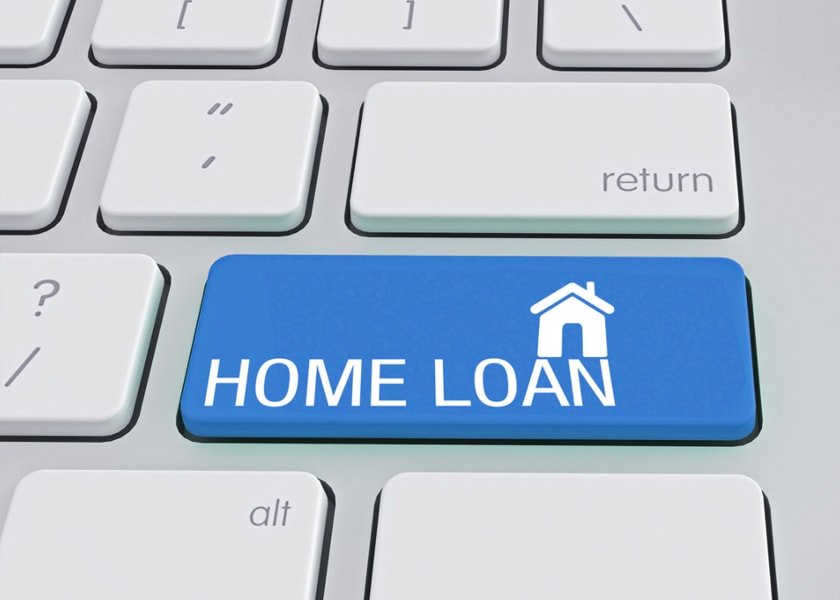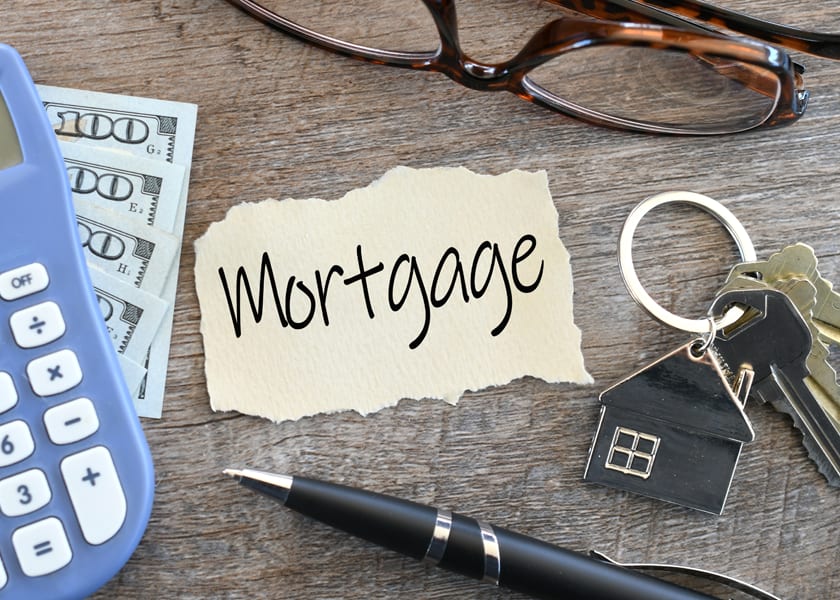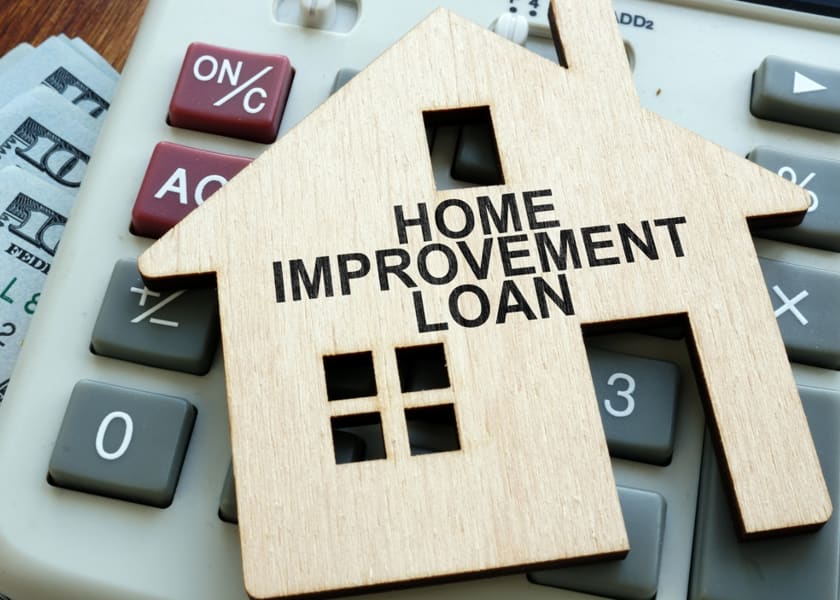Best Mortgage Lender
Quicken Loans 
Largest Online Mortgage Lender
- Offers Verified Approvals
- High Customer Satisfaction
- 24/7 Online Mortgage Services
- Wide Range of Loan Options
What is a mortgage?
Mortgage Loan Definition
A mortgage loan, also known as a home loan or a mortgage is a loan taken out by an individual(s) to purchase a property. Once the property is purchased the individual will pay off the loan over a fixed period. The terms of mortgage loans are complicated but essentially, they are agreements between an individual and a lender. You can read more about the types of mortgage loans below.
Mortgage Refinance Definition
A mortgage refinance is when an individual(s) takes out a new loan to pay off an existing home loan. The new home loan will have different terms and a typically lower interest rate than the original loan taken out.
Home Equity Loan Definition
A home equity loan allows borrowers to access equity that is in their homes. This term is often used interchangeably with second mortgage, though technically a second mortgage refers to when a second or third loan is taken out in addition to the first. A home equity loan enables you to borrow up to around 80% to 85% of the value of your house, less what you owe on your mortgage.
FHA Mortgage Loans
FHA loans are one of the most popular types of home loans, especially for first time home buyers. They are typically offered with lower down payments than other government-backed loans, but they are slightly more expensive than conventional mortgages. They are backed by the Federal Housing Administration (FHA).
VA Mortgage Loans
VA loans are available to those who have served in the U.S. military and have received a discharge that is not dishonorable. They are one of the best types of mortgages for veterans.
What are the different types of mortgage terms?
The different types of mortgages are fixed rate, adjustable rate, balloon payments, interest-only loans and more. Each type of mortgage is unique to the borrower's goals and financial situation. The best type for you will depend on your individual circumstances and how long you plan to live in your home.
Fixed Rate
Your interest rate stays the same for the entire period of your mortgage. You can pay down your principal or add to it over time which will reduce the amount you owe and your monthly payment.
Adjustable Rate
Also called a variable rate, adjustable-rate mortgages (ARMs) have interest rates that are subject to change over time. The initial rate is usually lower than other types of mortgages so you can afford the monthly payment, but the interest rate can rise or fall as market conditions change.
Balloon Payment
With a balloon mortgage, you pay the same amount each month until your "balloon payment" comes due at the end of your loan term. You then pay off the entire remaining balance in a single lump sum. You might choose this type of mortgage if you can afford the monthly payments but want to pay off your loan quickly.
Interest-Only
With interest-only mortgages, you make payments only for the interest that accrues each month. You don't make any additional payments toward your principal balance during the interest-only period, which is usually five or 10 years. By the end of that time, you will be required to start paying off your principal as well (if you don't already).
Two Types of ARMs (Adjustable-Rate Mortgages)
Adjustable-rate mortgages can be either fixed rate or adjustable rate:
Fixed-Rate ARMs
Your interest rate stays the same for the entire period of your loan, which may be 5, 7, or 10 years. You can pay down your principal or add to it over time which will reduce the amount you owe and your monthly payment.
Adjustable-Rate ARMs
Also called a variable rate, adjustable-rate mortgages (ARMs) have interest rates that are subject to change over time. The initial rate is usually lower than other types of mortgages so you can afford the monthly payment, but the interest rate can rise or fall as market conditions change.
Just How Are Mortgage Rates Are Determined?
Many variables influence your mortgage rate. Some are within your power to change, while others aren't. When you choose a mortgage lender, keep in mind of these factors so that you can feel more secure about receiving a competitive interest rate.
The Factors You Can Influence:
1. Credit Score
Your credit score is one of the most important factors that will determine your interest rate. Lenders use FICO to determine the best rate you qualify for. The higher your score the better your rate will be. Shop around with different lenders or brokers because rates can vary based on where you live and who you are as an individual even
2. Loan to Value Ratio
LTV is the relationship between the overall value of the mortgage and what you're borrowing. If your home is appraised at $300,000 but you're borrowing $270,000 then your Loan to Value ratio would be 90%. Most lenders set their upper limit on this percentage so if you fall above it, expect a higher rate. Typically, the lower your loan to value ratio the less risk for the lender and better rate for you.
The Factors You Cannot Influence:
Economy
The economy of the area where you live directly affects the housing market. When home sales are booming, rates tend to be higher because banks can determine that homeowners can afford higher payments based on their equity in their homes. On the other hand, when home sales are low it's because potential buyers are worried about losing their jobs or not finding another one.
Inflation
If inflation were to go up, rates would probably follow suit. People who borrow money are willing to pay more for the safety of fixed payments if they think prices will continue to rise or their incomes remain unchanged.
Job Growth
Mortgage lenders rely on people being employed for a long time. If unemployment rates go up, more people will lose their jobs and foreclosures will increase leading to a looser lending environment where lower interest rates can be found.
Lender Appetite for Risk
With so many factors contributing to mortgage rates, some lenders will be willing to take on more risk than others. Therefore, your interest rate can be determined by your lender's appetite for risk.
Market Conditions
Another factor that affects mortgage rates is the market conditions of prime lenders such as Fannie Mae. When Fannie Mae is in a risk adverse mode, it can limit the amount of money that mortgage companies are willing to loan out.
Qualifications for Different Types of Mortgages
To get any type of mortgage, you must have a decent credit history and the financial ability to make your monthly payments. In order to make payments, lender check your income as well as the length of time at your job. Your monthly income and assets are big factors in determining how much you are approved to borrow.
Qualifications Specific to a Mortgage Refinance
All lenders have different requirements for a mortgage refinance, but equity in the home is a very important one. This means how much of the home you have paid off. Experts generally say 20% is enough equity to refinance, however, If you have good credit you may be able to refinance anyway.
If you would like to do a cash out refinance, then you need to wait at least six months between each one, however there is no limit on how often you can refinance, but there are closing costs involved that can make constantly refinancing non beneficial.
Qualifications Specific to a Home Equity Loan
Just as with any other mortgage, factors do vary by lender, but we have a list of the most common qualifications below.
- Equity in your home of at least 15%.
- A credit score of 620 or higher is typically required
- Debt to income ratio of 43% or lower. (Debt includes student loans, credit cards, car payments, other mortgages, etc.)
Qualifications Specific to a FHA Mortgage Loan
- Your down payment is determined by your credit score. A score of 500 to 579 requires a down payment of 10% of the mortgage amount. A credit score over 580 can require a down payment for just 3.5%.
- Mortgage insurance is required.
- Debt-to-Income Ratio < 43%. (Debt includes student loans, credit cards, car payments, other mortgages, etc.)
- The borrower's principal place of residence must be the property being mortgaged.
- A borrower must have a steady income and proof of employment.
Qualifications Specific to a Veterans Affairs Mortgage Loan (VA)
The requirements for getting a VA loan depending on when you served. For the latest updates on eligibility requirements, please visit https://www.va.gov/housing-assistance/home-loans/eligibility/
Conclusion
The mortgage market is constantly evolving, and it can be hard to keep up with all the changes. To make sure you comply, stay tuned for more articles covering common qualifications as well as how these requirements may change over time. If you have any questions about your own qualification or need advice on which type of loan would work best for your needs, connect with one of our lenders to get expert advice.

















